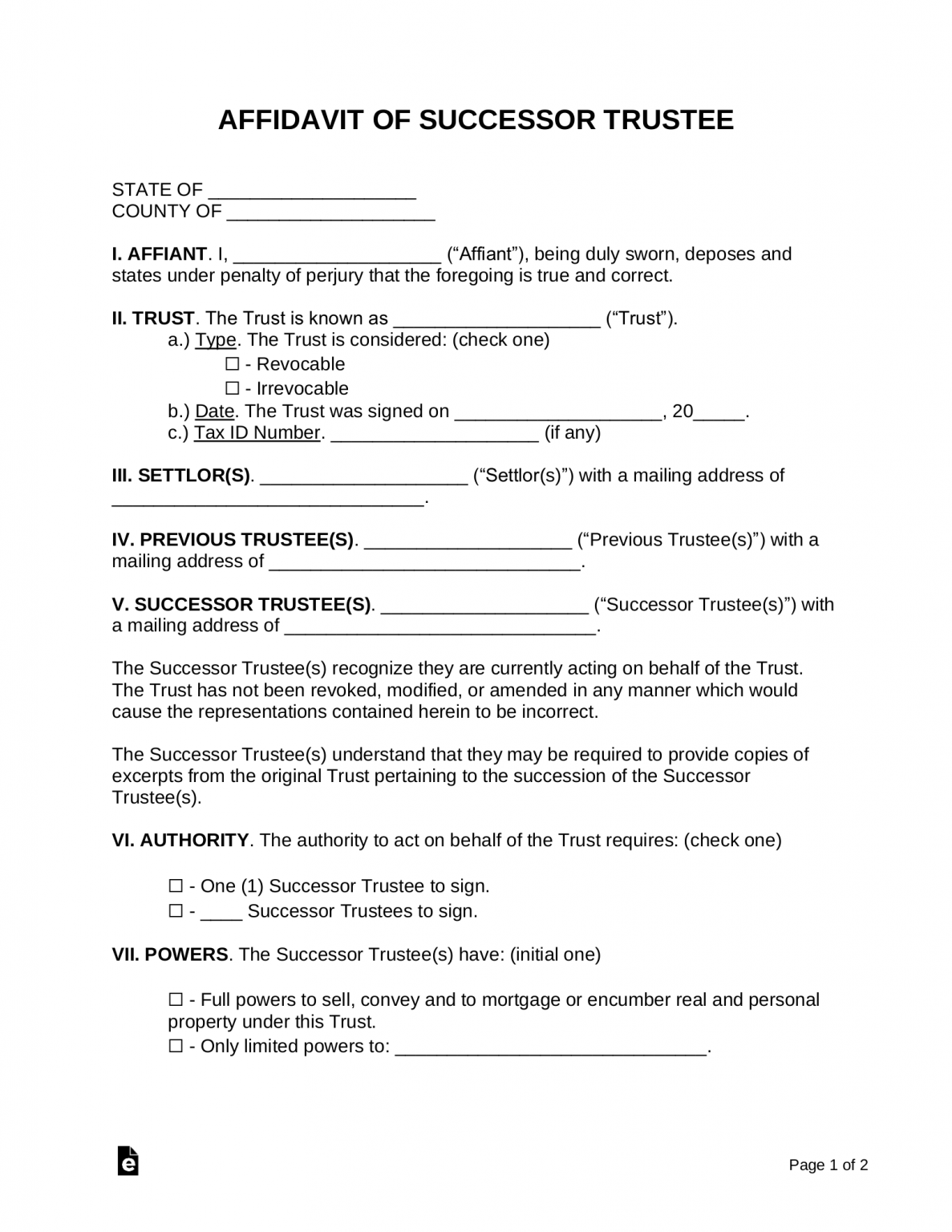The latest information about What Is A Second Successor Trustee that you need can be found in this article, all of which we have summarized well.
What is a Second Successor Trustee?
Imagine yourself as the trustee of a trust established by your late parents, responsible for managing assets worth millions of dollars. However, fate strikes, and you suddenly find yourself incapacitated, unable to fulfill your duties as the trustee.
In such a scenario, a second successor trustee steps into the picture, taking over the responsibilities of managing the trust and ensuring the beneficiaries’ interests are protected. This is a crucial role that requires a high level of trust, competence, and understanding of trust administration.
Understanding the Role of a Second Successor Trustee
A second successor trustee is appointed by the trustor (the person who created the trust) in the event that the primary trustee and any successor trustees are unable or unwilling to serve. Their primary responsibilities include:
- Managing trust assets
- Distributing income and principal to beneficiaries
- Making investment decisions
- Filing tax returns
- Ensuring compliance with trust terms
Qualifications and Duties of a Second Successor Trustee
Being a second successor trustee is not a task for the faint of heart. The ideal candidate must possess:
- Knowledge of trust law and administration: A deep understanding of trust principles, statutory requirements, and fiduciary duties is essential.
- Financial acumen: Managing trust assets requires sound financial judgment and expertise in investments, accounting, and tax planning.
- Impeccable character and integrity: A second successor trustee must be trustworthy, fair, and impartial in their decision-making.
- Communication and interpersonal skills: Effective communication with beneficiaries, attorneys, and other professionals is crucial for a successful trust administration.
Latest Trends and Developments
Technology has significantly impacted trust administration, with the rise of online platforms for asset management, financial reporting, and beneficiary communication. Trustees are increasingly utilizing these tools to enhance efficiency and transparency.
Moreover, the growing complexity of trusts and financial markets has led to a greater demand for specialized knowledge and expertise among trustees. Second successor trustees are expected to stay abreast of the latest developments in trust law and investment strategies.
Tips and Expert Advice for Second Successor Trustees
As a blogger with experience in trust administration, I offer the following tips for individuals appointed as second successor trustees:
- Familiarize yourself with the trust document: Thoroughly study the trust agreement to understand its terms, objectives, and distribution guidelines.
- Seek professional guidance: Consult with an attorney specialized in trust law to clarify any ambiguities or complex provisions in the trust document.
- Establish open communication with beneficiaries: Regular communication keeps beneficiaries informed of trust activities and helps address any concerns they may have.
- Maintain accurate records: Document all trust transactions, decisions, and communications to ensure transparency and accountability.
FAQ on Second Successor Trustees
Q: What happens if the second successor trustee is also unable to serve?
A: The trust typically provides for the appointment of a third successor trustee or other contingencies to ensure the continuity of trust administration.
Q: Can a second successor trustee be removed?
A: Yes, under certain circumstances, a second successor trustee can be removed by a court for breach of fiduciary duty, mismanagement of assets, or other misconduct.
Q: What is the difference between a successor trustee and a second successor trustee?
A: A successor trustee is the first person in line to take over the role if the primary trustee becomes incapacitated or unable to serve. A second successor trustee is appointed to serve if the successor trustee is also unavailable.
Conclusion
The role of a second successor trustee is critical to the proper administration and preservation of trusts, ensuring the wishes of the trustor are carried out effectively. By understanding their responsibilities, qualifications, and following best practices, second successor trustees can fulfill this important role with confidence and competence.
If you have been appointed as a second successor trustee, I encourage you to seek professional guidance and continue to educate yourself on the latest developments in trust law and administration. Your commitment to serving as a responsible and diligent trustee will ultimately benefit the beneficiaries and ensure the legacy of your loved ones.

Image: eforms.com
Thank you for reading What Is A Second Successor Trustee on our site. We hope you find this article beneficial.

 Hovk.org Trusted Information and Education News Media
Hovk.org Trusted Information and Education News Media